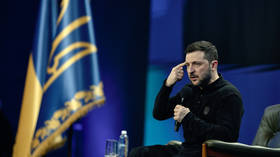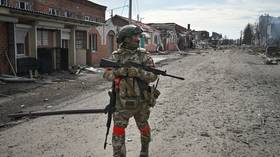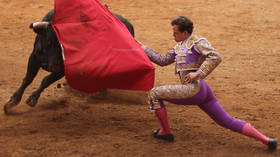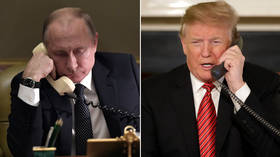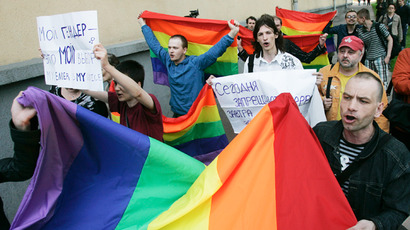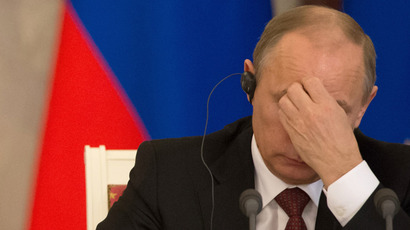Russian senators give green light to 'gay propaganda' ban
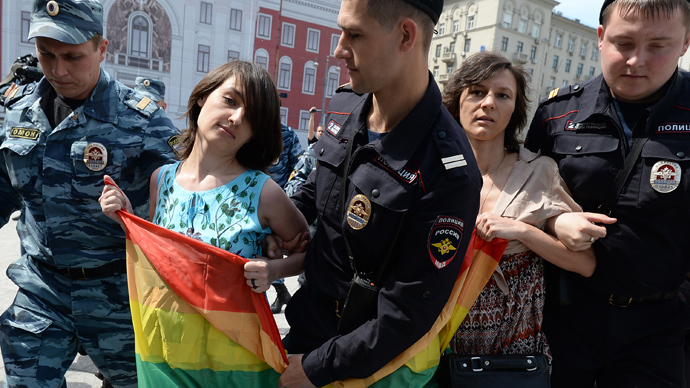
Russia’s upper house, the Federation House, has approved a bill introducing fines for propaganda of non-traditional sex relations to minors, including in the media, on the internet and via viral adverts.
Some 137 senators voted for the draft law which introduces administrative liability and fines of up to a million roubles (over US$ 30,000) for promotion of homosexuality among children. One senator abstained from voting and no one voted against the legislation.
The controversial bill – which critics fear may spark a wave of homophobia in the country – was approved by the lower house, the State Duma, on June 11. The vast majority of the population – 88 % - is also in favor of the introduction of the ban, according to a poll by the Russian Public Opinion Research Center (VCIOM).
The draft law is not discriminative against LGBT people and is only aimed to protect minors, Federation Council speaker, Valentina Matvienko, emphasized on Wednesday, ahead of voting.
Unlike in the Soviet times, people with non-traditional sexual orientation are no longer prosecuted in Russia, she reminded.
“They are ordinary equal members of the society. As adults, they are entitled to decide how they want to live. But when it comes to minors [the ban on propaganda] is not someone’s whim, but a demand from the society,” Matvienko said.
Under the bill, individuals will be fined up to 5,000 roubles ($US 152) for such propaganda, officials will have to pay up to 50,000 roubles (about US$ 1,500) and companies – up to 500,000 roubles (about $US 15,000).
If law violators use the media or the internet for the promotion of non-traditional sex relations, they will face even harsher punishment. For instance, individuals will have shell out up to 100,000 roubles (about US$ 3,000), while organizations – a million roubles or face a 90-day suspension of activities.
Foreign citizens or stateless persons who violate the ban will face a fine or an arrest for up to 15 days followed by a deportation from Russia.
The law also defines what is considered the gay propaganda of non-traditional relations. It is the distribution of information aimed at forming non-traditional sexual concept in children, describing such ties as attractive, promoting the distorted understanding of social equality of traditional and non-traditional relations and also unwanted solicitation of information that could provoke interest in such relations.
The bill was slammed as “anti-gay” by gay rights activists both in Russia and abroad. The issue was raised again earlier in the week. The Russian president called on Western countries not to interfere with Russian internal affairs, speaking at a media conference during his trip to Finland. He reiterated that the draft law is not about introducing any sort of sanctions on homosexuality and does not violate rights of sexual minorities.
“Some countries ... think that there is no need to protect children from this. We Do. We are not going to interfere,” he said. “But we are going to provide such protection the way that State Duma lawmakers have decided.”
To come into force, the bill has yet to be signed by the president.







